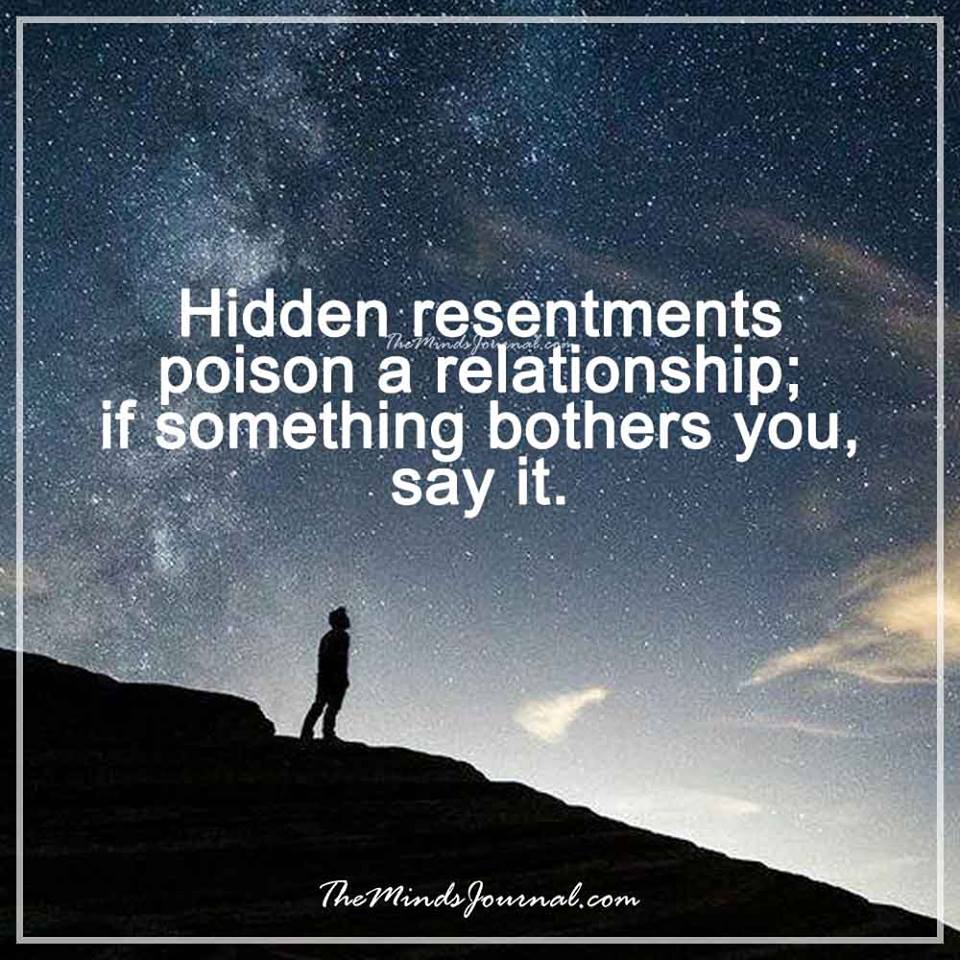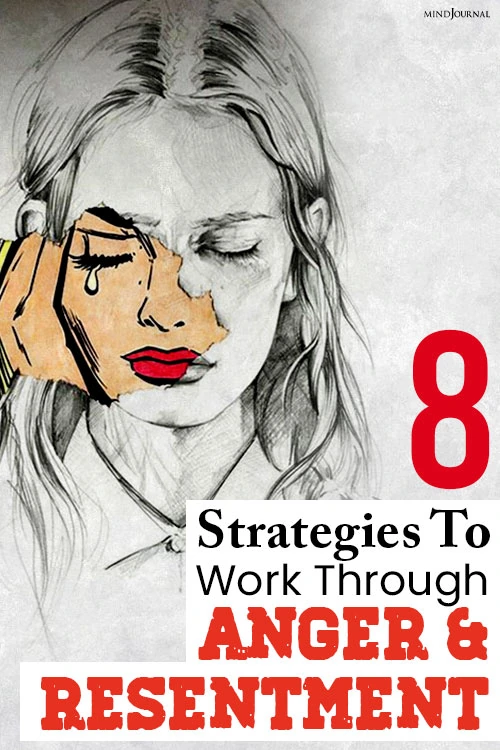Suffering from anger issues? Anger is an uncontrollable emotion that takes control of us and causes us to do or say things we wouldn’t normally say or do. Here are 8 strategies for dealing with anger and resentment. It will help you in dealing with negative emotions in a heathy manner.
With the recent U.S. election and upcoming presidential inauguration, feelings of anger and resentment have become more widespread and more intense. Many people seem to be carrying their anger and resentment wherever they go, like an overstuffed suitcase.
It is baggage that weighs them down and demands considerable attention and energy. This anger related to recent and current events and the resentment it fuels are contributing factors to ever-greater levels of interpersonal conflict and animosity — including among friends and family members.
Related: Why You Are Frustrated And Angry All The Time: 5 Psychological Reasons
Anger
Anger is a normal, natural emotion. In many situations, it’s a healthy and appropriate emotional reaction. Anger is an emotional response to a real or imagined “wrong” or injustice, but sometimes people get angry simply because things don’t go the way they would like.
Anger takes place in the present, when life isn’t going the way we think it should. In this way, anger has a corrosive effect — it is a “fight” against present-moment reality, a refusal to accept what is. As Mark Twain put it, “Anger is an acid that can do more harm to the vessel in which it is stored than to anything on which it is poured.”

Most often, anger is a secondary emotion. It can take shape instantly and unconsciously in response to something or someone that evokes feelings of hurt, fear, and/or inadequacy. When most people experience these primary emotions, they feel vulnerable, and their energy and attention are focused inward. For many people, this revealing of vulnerability creates so much distress that the underlying emotions are automatically transformed into anger.
Anger Serves Several Defensive Purposes:
- It works as a shield that deflects uncomfortable primary emotions so they can be avoided or kept at a distance.
- It provides a sense of power and control.
- It directs focus outward to identifiable, external scapegoats (individuals, groups, institutions). It is almost always easier and more comfortable to focus on the actions of others than it is to focus on oneself.

Related: The Damaging Effects Of Negativity On Your Health
Resentment
Resentment is closely related to anger. Resentments are negative feelings, basically ill will, toward someone or something that emanates from the past. Resentment is the re-experiencing of past injustices — real or perceived — and the old feelings of anger connected to them. Resentments form when people get angry toward a person, institution, or situation, and steadfastly hold on to that anger.
Some people hold resentments for many years, refusing to let go of them. Over time, whatever caused the original anger and led to the resentment may be forgotten, while the resentment remains, like a still-smoldering ember left after the flames of a fire die down. The fire no longer rages, but the ember remains hot and at risk of the fire to reignite until it is extinguished.

There is a saying that when you resent somebody, you become his or her slave. The stronger the resentment is, the more time you spend thinking about it, caught up in the anger connected to it. This is a form of mental, emotional, and spiritual bondage. Ultimately, the person holding the resentment is the one who suffers most. Consistent with the 12-step adage, “Holding a resentment is like drinking poison and waiting for the other person to die.”
Although of course there are times when anger and resentment are appropriate and justified, often they built on a foundation of distorted belief that others should or must act the way you want them to.
If you allow yourself to become angry or resentful whenever situations don’t go the way you prefer, then you are effectively giving control of your feelings to others. It’s similar to using a remote control to change channels on the TV. If your feelings depend on how other people behave, you are giving them the remote control to your emotions.
Related: 12 Toxic Behaviors That Push People Away
There Are Specific Actions You Can Take To Address Feelings Of Anger And Resentment In More Healthy And Helpful Ways:
1. Practice identifying and allowing yourself to feel the underlying emotions that anger may be superimposed upon — such as hurt or fear. Strive to be present with and accept these feelings and the vulnerability they elicit.
2. Practice being consciously present with your anger and resentment. Observe it. Allow it to simply be. Hold it. Visualize putting space around it. Notice what happens.
3. Identify how you may have contributed to the situation(s) that you are angry or resentful about. Be aware that people (including you) frequently play a part in the circumstances about which they are angry and/or resentful.
4. Practice expressing anger and resentment differently. Share these feelings with safe, supportive individuals whom you trust. Journal or write about them. Discharge them through physical activity by working out, taking a walk or run, going for a hike, or playing a sport. If appropriate to the situation, participate in activities that promote social and economic justice and other forms of nonviolent activism.
5. Learn and practice relaxation and self-calming techniques. Examples include intentional breathing, mindfulness, meditation, yoga, Qi Gong, progressive relaxation, and quiet, unplugged downtime.
6. As difficult as it may be, endeavor to practice treating those people you feel angry at or have resentment toward with kindness and compassion. Notice what happens when you change how you act toward them — they will often change how they act toward you.
7. Resist the urge to be a channel for the anger and resentment of others. The anger and resentment of others can be seductive — they can have an almost magnetic pull. Don’t buy into it; resist the urge to join in their negativity or participate in gossip.
8. Practice applying the understanding that unless you’ve learned how to change the past, it’s as good as it’s ever going to get! Find ways to remind yourself of this whenever you need to — you don’t have to like what’s happening in the present or has happened in the past in order to accept it. And acceptance will free your attention and energy from the shackles of anger and resentment, enabling you to be more skillful in the present.
Related: 10 Common Habits of Bitter People And How to Avoid Them
Copyright 2017 Dan Mager, MSW
Author of Some Assembly Required: A Balanced Approach to Recovery from Addiction and Chronic Pain
Anger issues can cause severe damage to your interpersonal relationships. We have you were able to learn about the beneficial ways to over negative emotions and feelings. Tell us more in the comments below!
Written by: Dan Mager MSW
Originally appeared on: Psychology Today
Republished with permission
Frequently Asked Questions
How do you deal with anger and resentment in a relationship?
Don’t avoid your emotions; sit with them and acknowledge them. Talk to someone outside the relationship. Identify the source of your negative emotions. Take accountability for your mistakes. Empathize with your loved ones and try to forgive them.
What are some natural ways to relieve stress and anger?
Meditation, deep breathing, listening to soothing music, and visualizing yourself in a peaceful and calming environment or your “happy place” are some coping tools. Additionally, you can pause before you react, go for a walk, or divert your attention.
How do you deal with anger and frustration at work?
Identify the reason for your anger and acknowledge your feelings. Talk to someone you can trust or disconnect for some time and think peacefully. Do deep breathing. Imagine how someone you admire would react in this situation. Chalk out a strategy.










Leave a Reply
You must be logged in to post a comment.